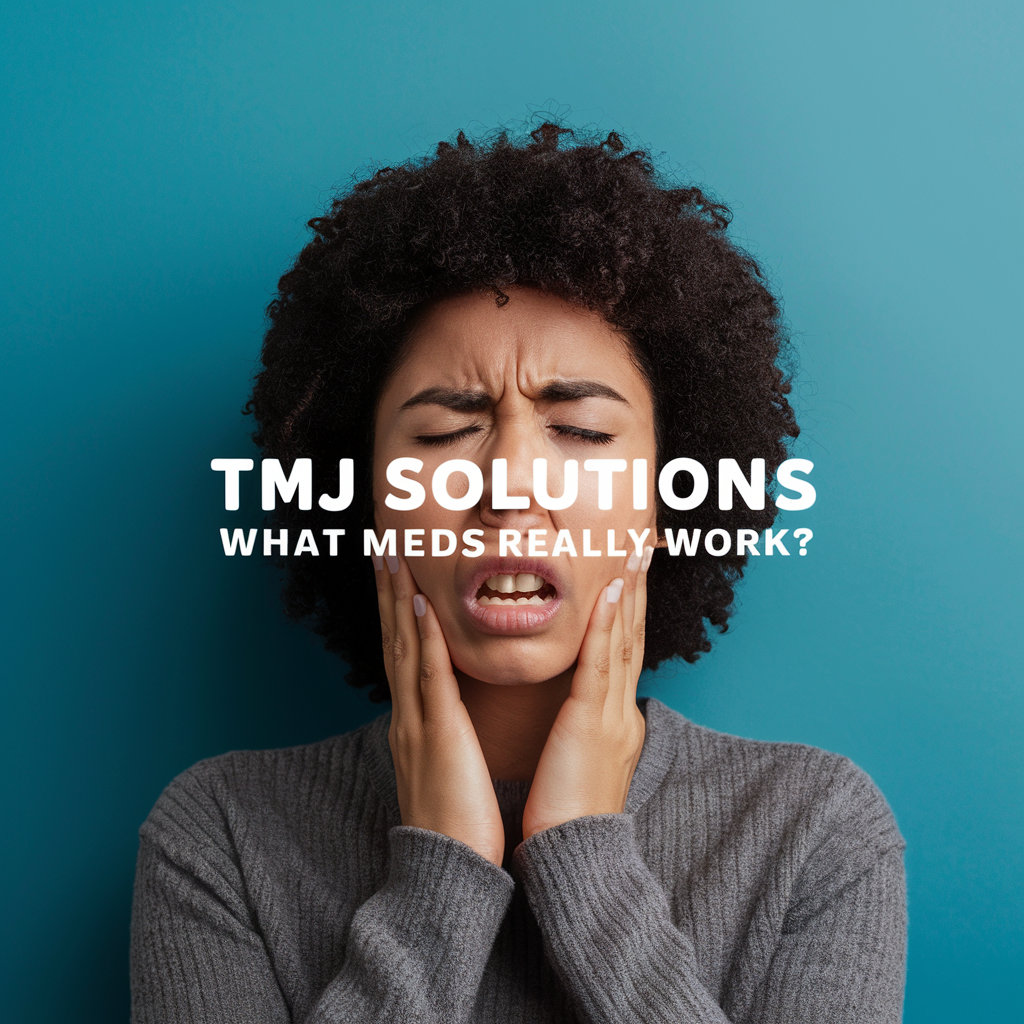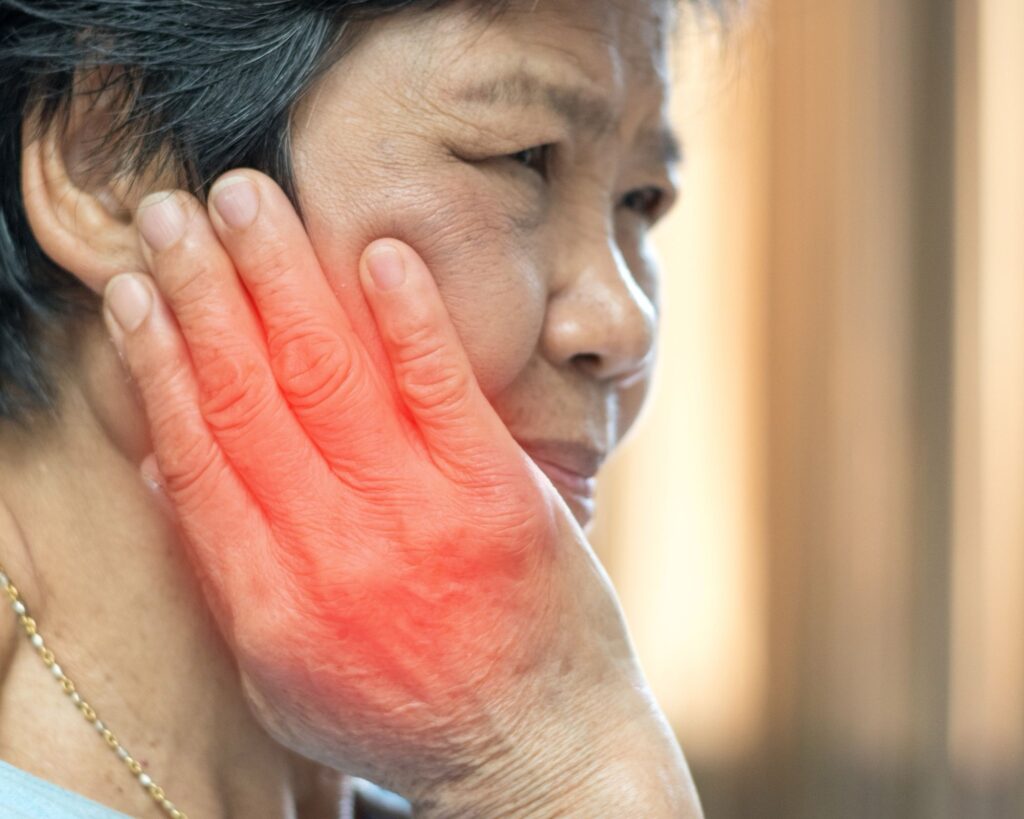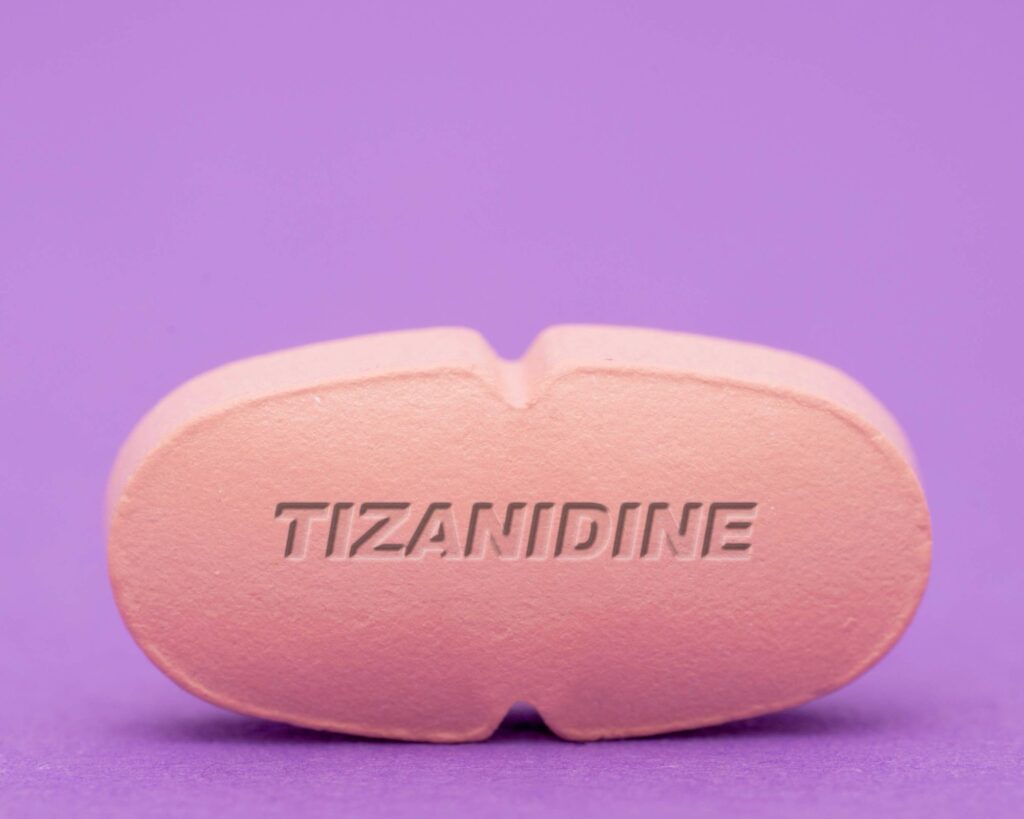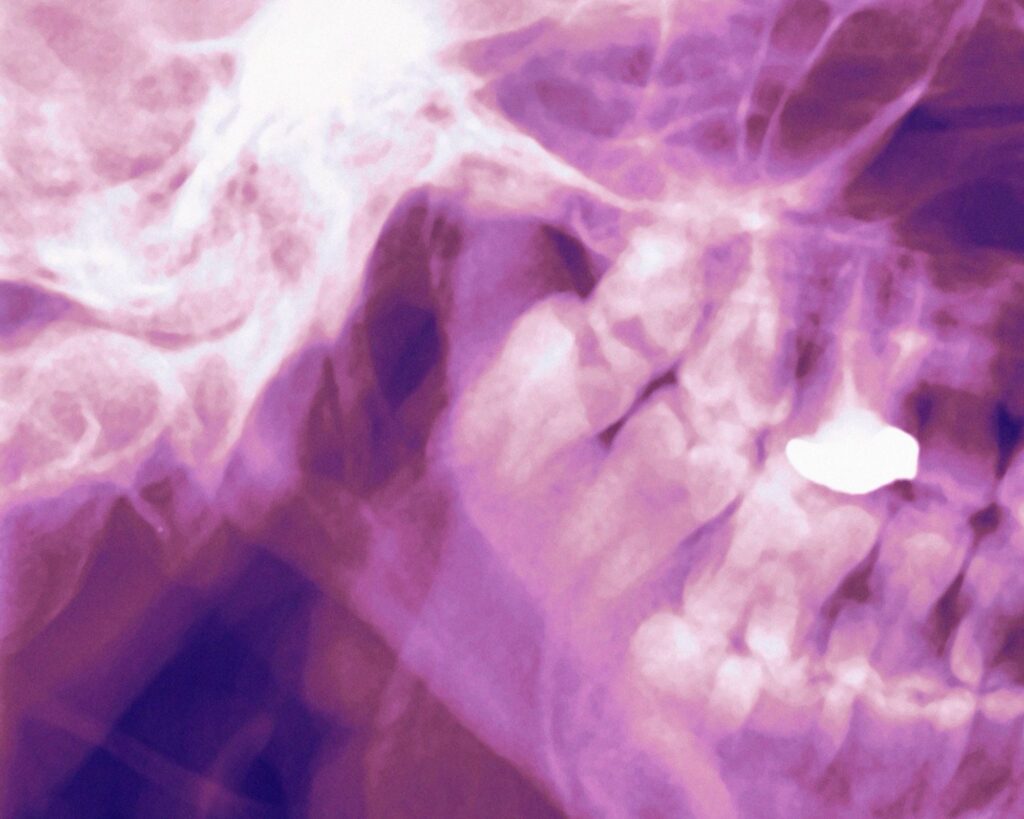
What is TMJ and What Causes It?
If you’re like many people, you might occasionally experience a clicking or discomfort in your jaw when eating, talking, or yawning. It’s possible you’re dealing with Temporomandibular Joint Disorder, commonly known as TMJ. As someone who’s navigated the complexities of TMJ firsthand, I’ve come to understand not only the symptoms but also the underlying causes of this condition.
TMJ encompasses a range of dysfunctions and pain in the jaw joint and the muscles that control jaw movement. The causes can be multifaceted, ranging from genetics to poor posture, stress, excessive gum chewing, or even arthritis. In my journey, identifying what exactly triggers my TMJ flare-ups was crucial. It’s not always straightforward, as symptoms can vary widely, but they typically include pain in the jaw, face, or neck, stiffness in the jaw muscles, limited movement, and audible jaw clicking or locking.
Understanding TMJ’s root causes and symptoms is the first step in managing this condition effectively. For deeper insights into distinguishing TMJ from other types of jaw pain, I found the article on “Identifying the Root Cause of TMJ Pain” extremely helpful. It’s essential to get a proper diagnosis, as it can significantly influence the choice of treatment and ultimately, the quality of life.

How are Muscle Relaxers Used in TMJ Treatment?
When dealing with TMJ, one of the first recommendations many healthcare providers make is the use of muscle relaxers. Having gone through various treatments myself, I’ve experienced firsthand how these medications can play a pivotal role in managing TMJ symptoms. Muscle relaxers help by alleviating muscle spasms and reducing tension in the jaw, which are often major contributors to the discomfort and pain associated with TMJ.
Muscle relaxers are particularly useful during acute flare-ups when the jaw feels locked or the pain becomes unbearable. These medications work by acting on the central nervous system to relax muscles throughout the body, which can indirectly lessen the strain on the jaw muscles. This relaxation can provide significant relief from pain and improve jaw movement, making daily activities like eating and speaking more manageable.
However, it’s important to note that while muscle relaxers are effective in easing symptoms, they are typically recommended for short-term use. Prolonged use can lead to potential side effects such as dizziness, fatigue, and dependency. My doctor emphasized the importance of combining medication with other therapies, such as physical therapy or stress management techniques, to achieve the best results in managing TMJ long-term.
Incorporating these medications into my treatment plan, under medical supervision, significantly improved my quality of life. They helped manage my symptoms at times when my TMJ felt most debilitating, allowing me to focus on recovery and strengthening exercises that addressed the root causes of the disorder.

What Muscle Relaxers Work Best for TMJ?
Choosing the right muscle relaxer for TMJ can be a critical step in managing this disorder effectively. Over the years, I’ve tried various prescriptions, and each has had its unique way of alleviating my symptoms. It’s crucial to consult with your healthcare provider to find the one that suits your specific needs best, as they can vary greatly in effectiveness and side effects.
Among the muscle relaxers I found helpful, Cyclobenzaprine is often prescribed for its efficacy in reducing muscle tension and pain. This drug can be particularly useful at night to alleviate jaw clenching and ensure a more restful sleep, which is crucial because good sleep helps mitigate TMJ symptoms. Another option that many find beneficial is Methocarbamol, which can reduce acute muscle spasms associated with TMJ flare-ups.
Interestingly, Tizanidine is another muscle relaxer that’s gaining attention for TMJ treatment. It works slightly differently by increasing the overall level of muscle relaxation and has been effective for me, especially during periods of intense stress when my jaw tightness is at its peak. Tizanidine helps not only in relaxing the jaw muscle but also in reducing the overall frequency of muscle spasms, making it a strong contender in the lineup of muscle relaxers suitable for TMJ management.
However, it’s important to remember that while these medications can provide relief, they should not be viewed as a standalone solution. They work best when combined with other treatments such as physical therapy, behavioral changes, and, in some cases, dental interventions. My experience has shown that a holistic approach, focusing on both immediate symptom relief and long-term management strategies, is key to effectively dealing with TMJ.

Does Tizanidine Work Well for TMJ?
In my quest to find relief from TMJ, I came across Tizanidine, a muscle relaxer not as commonly associated with TMJ treatment as others but with potential benefits worth considering. Based on my experience and the advice of my healthcare provider, Tizanidine has proven to be an effective option for managing the muscle spasms and pain that come with TMJ.
Tizanidine works by blocking nerve impulses that are sent to your brain, which are responsible for causing muscle stiffness and spasms. This action helps relax the muscles not only around the jaw but throughout the body, which can be particularly beneficial if your TMJ symptoms are part of a broader pattern of muscle tension.
For me, Tizanidine has been effective especially during episodes of intense stress, when my jaw tightness becomes more pronounced. It has helped reduce the frequency and severity of my jaw muscle spasms, which in turn decreases the overall pain and discomfort. However, it’s essential to use this medication under the guidance of a healthcare professional, as it can cause side effects such as drowsiness or dry mouth, which I found manageable but might be inconvenient for others.
Additionally, Tizanidine’s effectiveness in TMJ treatment can vary depending on individual factors such as the underlying cause of TMJ and the presence of other symptoms. For instance, if your TMJ is significantly driven by stress or anxiety, the relaxing effects of Tizanidine could be particularly beneficial. In contrast, if your TMJ symptoms are more related to physical factors like dental alignment, other treatments might need to be prioritized.
Overall, integrating Tizanidine into my TMJ management plan has been a valuable part of my strategy to combat the discomfort. It’s not a cure, but it significantly contributes to a multi-faceted approach that addresses the symptoms comprehensively.

What Other Medications are Effective for TMJ?
While muscle relaxers like Tizanidine have been a key component of my TMJ treatment plan, exploring other medication options has also been essential in managing the varied symptoms of this disorder. Each type of medication offers different benefits, and finding the right combination can be a game changer in improving overall quality of life.
Nonsteroidal Anti-Inflammatory Drugs (NSAIDs) like ibuprofen and naproxen are staples in my TMJ management toolkit. These medications are effective in reducing inflammation and pain associated with TMJ. They provide quick relief, especially during flare-ups when my jaw feels particularly tender and swollen.
Antidepressants have been prescribed in low doses for some TMJ sufferers, primarily for their pain-relieving properties. While I was initially skeptical, I found that certain antidepressants can help reduce pain perception and improve sleep quality, which in turn helps reduce the stress that can exacerbate TMJ symptoms.
Another helpful treatment has been topical medications. For instance, applying Voltaren gel, which is a topical NSAID, directly to the jaw area can provide targeted pain relief without the systemic side effects associated with oral NSAIDs. You can find more about this treatment with the Voltaren Arthritis Pain Gel, available on Amazon.
In addition to medications, using oral appliances like splints or mouthguards at night has significantly reduced the pressure on my jaw by preventing teeth grinding and clenching, which are common in TMJ sufferers. These devices help to stabilize the jaw position and alleviate strain on the muscles and joints.
It’s important to note that while these medications can provide relief, they should be used as part of a comprehensive treatment approach that includes behavioral modifications, physical therapy, and, in some cases, counseling to manage stress. Always consult with a healthcare provider to tailor a treatment plan that addresses both the symptoms and the underlying causes of your TMJ. This multifaceted approach has been instrumental in managing my TMJ effectively.

Can Non-Medication Treatments Complement TMJ Medication?
In managing my TMJ, I’ve learned that relying solely on medication, even the most effective ones, offers only part of the solution. Complementary non-medication treatments are crucial for long-term management and can significantly enhance the effectiveness of medications. Incorporating these treatments has been pivotal in addressing the broader spectrum of TMJ symptoms and underlying causes.
Physical Therapy: One of the most effective non-medication treatments I’ve incorporated is physical therapy. A specialized physical therapist trained in TMJ disorders can provide exercises that strengthen the jaw muscles, improve alignment, and increase jaw mobility. These exercises also help reduce tension and promote better movement patterns, which are essential for lasting relief.
Stress Management Techniques: Stress is a major aggravator of TMJ symptoms. Techniques such as mindfulness meditation, yoga, and deep breathing exercises have been invaluable in helping me manage stress levels, thereby reducing the frequency and severity of TMJ flare-ups. Learning to maintain a relaxed jaw position throughout the day is another simple yet effective method to lessen muscle strain.
Dietary Adjustments: Modifying my diet to include softer foods during flare-ups has reduced the strain on my jaw, allowing the joint and muscles to heal. Avoiding chewy or hard foods minimizes the work my jaw has to do, which can be a relief when symptoms are at their worst.
Heat and Cold Therapy: Applying heat or cold can provide immediate symptom relief. For example, using a hot pack can relax the muscles and increase blood flow, while a cold pack can reduce inflammation and numb pain. The LotFancy Face Ice Pack Wrap for TMJ has been a game-changer for me, offering both heat and cold therapy options specifically designed for jaw and facial use.
Integrating these non-medication treatments with medications has created a comprehensive approach that not only addresses the immediate symptoms but also works towards long-term management of TMJ. It’s a holistic strategy that maximizes the benefits of each treatment type, contributing to a greater overall effectiveness and improved daily functioning.

Best Practices for Managing TMJ
Managing TMJ effectively requires a comprehensive approach that combines both medication and non-medication strategies. Through my personal journey, I’ve discovered that there is no one-size-fits-all solution for TMJ. Instead, successful management is about finding the right combination of treatments that address the unique symptoms and causes of your condition.
Consulting with Healthcare Professionals: It’s crucial to work closely with healthcare professionals who specialize in TMJ disorders. They can provide personalized advice and adjustments to your treatment plan based on your specific needs and responses to various therapies.
Adapting Treatment Plans: Over time, your TMJ symptoms may change, and so should your treatment plan. Regularly evaluating the effectiveness of your current strategies and making necessary adjustments is key. This dynamic approach ensures that you are always using the most effective methods for your current condition.
Educating Yourself and Monitoring Symptoms: Being informed about TMJ and understanding the role of different treatment options empowers you to make educated decisions about your health. Keep a symptom diary to track what treatments relieve pain and what triggers exacerbate it. This information can be invaluable in managing your TMJ more proactively.
Staying Committed to a Multi-faceted Approach: Combine medications, physical therapy, stress reduction techniques, and proper diet to tackle TMJ from all angles. Each element plays a critical role in overall management and can lead to significant improvements in your quality of life.
In conclusion, while TMJ can be a challenging and sometimes painful disorder, adopting a well-rounded and personalized treatment plan can lead to effective management and a more comfortable life. Remember, the key to dealing with TMJ is not just about suppressing symptoms but rather understanding and addressing the underlying causes in a holistic way. With persistence and the right support, you can achieve significant relief from TMJ symptoms.
As an Amazon Associate we earn from qualifying purchases through some links in our articles.




